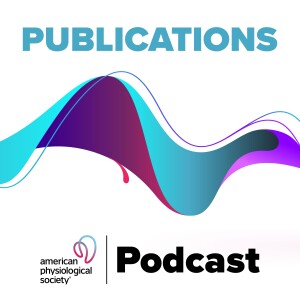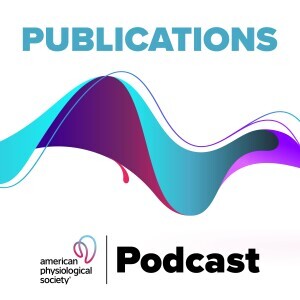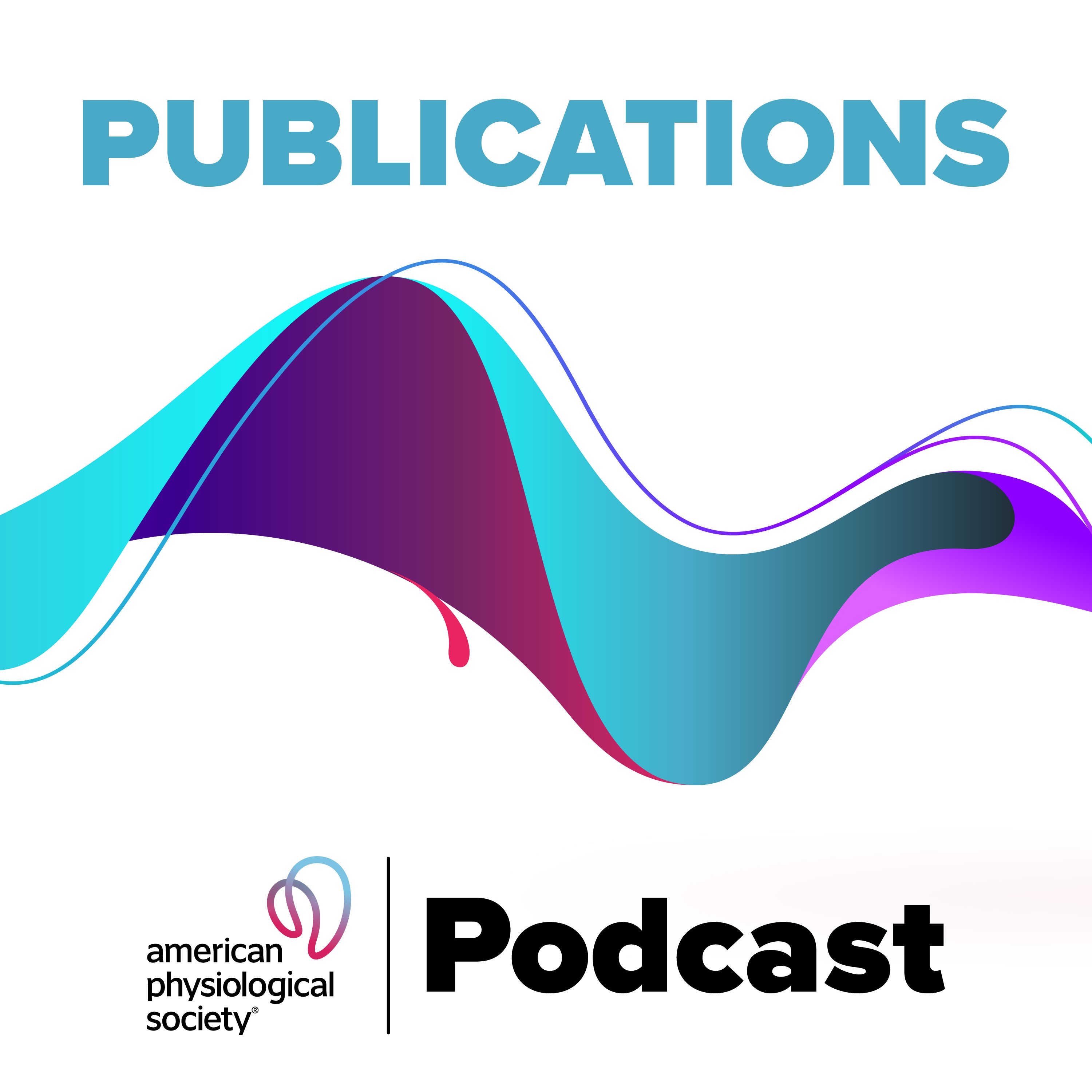Episodes

Thursday May 16, 2024
Thursday May 16, 2024
In this episode of The APS Publications Podcast, Adrienne Lester King discusses the Empower Program. The Engaging Multidisciplinary Professional Opportunities for Women in Environmental Research (EMPOWER) program is a one-of-a-kind research summer experience for minority female high school students in the state of Georgia. In addition, this program provides high school teachers with hands-on experiences that can be adapted to use in the classrooms. This combination of lab and field research immerses participants in understanding urban environmental exposures and their health effects. The EMPOWER program was established to meet the critical need for increasing diversity in science, technology, engineering, and mathematics.
Adrienne Lester King,Cristi Bell-Huff,Collins Airhihenbuwa,Susan Ogletree, and Christa Wright The EMPOWER program: a history and guide for increasing diversity using integrated research and education
Advances in Physiology Education, Published online 24 April 2024

Friday May 03, 2024
Teaching Critical Thinking in Nutritional Sciences
Friday May 03, 2024
Friday May 03, 2024
Author Tyler B. Becker highlights the paper titled "Teaching critical thinking in nutritional sciences: a model course and assignments." The authors of this paper show that a scaffolded nutrition and health claim assignment helps to teach critical thinking skills among nutritional sciences students. Further, this course example is to serve as a model for STEM majors on how to incorporate case-based and problem-based learning strategies into an undergraduate course.
Tyler B. Becker,Vanessa N. Cardino,James Lucas, andJenifer I. Fenton Teaching critical thinking in nutritional sciences: a model course and assignments
Advances in Physiology Education, Published online 9 April 2024

Monday Mar 25, 2024
Physiology Quiz Competition - the Game of Education or Entertainment?
Monday Mar 25, 2024
Monday Mar 25, 2024
In this episode of The APS Publications Podcast, Hardikkumar Amrutbhai Mistry touches on the topic of competition as a method of teaching and learning physiology that provides education with entertainment in a medical college. The authors of this paper believe it increases students’ interest in the subject of Physiology and helps them to understand and learn the subject effectively.
Hardikkumar Amrutbhai Mistry, Narendra Pathak, Dhvani Desai, Sharvil Dulera, and Rachana Mandli Physiology quiz competition: the game of education or entertainment?
Advances in Physiology Education, Published online 17 January 2024

Friday Mar 22, 2024
Adcy3: a Link between Obesity and Depression
Friday Mar 22, 2024
Friday Mar 22, 2024
In this episode of The APS Publications Podcast, Mackenzie Fitzpatrick, and Leah C. Solberg Woods discuss the recently published Mini-Review "Adenylate cyclase 3: a potential genetic link between obesity and major depressive disorder." In this podcast and associated paper, the authors discuss the role of both Adcy3 and the cAMP/PKA pathway, including specific genetic mutations, in both obesity and major depressive disorder. Understanding the role that Adcy3 mutations play in obesity and MDD could open the door for precision medicine approaches and treatments for both diseases that target this gene.
Physiological Genomics 2024 56:1, 1-8

Monday Mar 18, 2024
A Primer: How to Address Peer Reviews of Your Manuscript
Monday Mar 18, 2024
Monday Mar 18, 2024
In this episode of The APS Publications Podcast, Amie J. Dirks-Naylor talks about the Peer Review process as a foundational element of scientific publishing, serving as a mechanism to ensure research quality and rigor. The journey often involves a crucial step, addressing reviews of your manuscript. Peer reviews, although essential for refining your work, can be challenging to navigate. This podcast and paper are designed to help authors approach this process.
Amie J. Dirks-Naylor A Primer: How to Address Peer Reviews of Your Manuscript
Advances in Physiology Education, Published 23 January 2024

Tuesday Mar 12, 2024
Inquiry Based Learning for Intensive Care Medicine
Tuesday Mar 12, 2024
Tuesday Mar 12, 2024
In this episode of The APS Publications Podcast, Aniket Nadkarni, and Rahul Costa-Pinto discuss new insights into the benefits and challenges of an inquiry-based learning (IBL) program in the context of practicing clinicians. An IBL program was launched as part of a novel binational intensive care medicine education program. Postgraduate intensive care medicine practitioners participated in this education intervention, where facilitated group discussions explored core intensive care medicine concepts. Survey responses indicated overall satisfaction, engagement with the IBL format, and a constructivist approach to learning.
Aniket Nadkarni, Rahul Costa-Pinto, Tamishta Hensman, Emily V. Harman, Fumitaka Yanase, Bruce G. Lister, Christopher P. Nickson, and Josephine S. Thomas Evaluating an inquiry-based learning program
Advances in Physiology Education, Published 8 November 2023

Friday Mar 08, 2024
Friday Mar 08, 2024
In this episode of The APS Publications Podcast, Lajja Patel discusses the modification of wet spirometers to investigate the fundamental laws of flow and different types of lung disease. This activity involves cost-effective modifications to the wet spirometer, broadening its applicability. These modifications effectively address student challenges associated with wet spirometer handling and enhance comprehension of fluid dynamics, all without the need for costly simulations, wet experiments, or fragile instruments. By offering a hands-on experience without traditional limitations, our modified spirometer provides an accessible and engaging approach to respiratory physiology education.
Prashant Rajdeep, Lajja Patel, Ketaki Poorey, Preeti Panchal, and Susan Yohannan Enhancing respiratory physiology education: innovative wet spirometer modifications for hands-on learning
Advances in Physiology Education, Published January 29, 2024 DOI: 10.1152/advan.00132.2023

Thursday Feb 29, 2024
Flipped Classroom for Undergraduate Medical Students in India: Are we ready for it?
Thursday Feb 29, 2024
Thursday Feb 29, 2024
In this episode of The APS Publications Podcast, Anita S. Malhotra, and Anumeha Bhagat discuss the possibility of flipped classrooms for Undergraduate Medical Students in India. The authors conducted a study to find if flipped teaching model improves the learning of medical undergraduate students and assess students’ perceptions. There was no difference in marks obtained by students taught with either flipped or traditional methods. The reasons for this could be differences in the level of learner, prior exposure, or learner readiness for active learning. Since students prefer the flipped method of classroom teaching, it is feasible to adopt it in the Indian classroom.
Anita S. Malhotra, and Anumeha Bhagat Flipped classroom for undergraduate medical students in India: are we ready for it?
Advances in Physiology Education, Published September 13, 2023 DOI: 10.1152/advan.00200.2022

